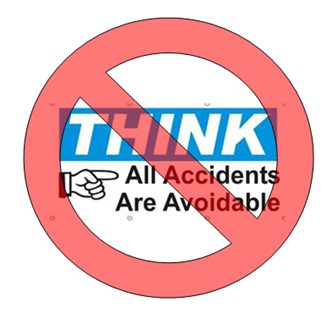Originally posted on May 4, 2015 @ 9:07 AM
A Philosophy of Safety
 Philosophy is about the study of existence, beliefs and ideas. The word ‘philosophy’ actually means the ‘love of wisdom’ and has been ascribed to the work of Pythagoras. The word ‘wisdom’ is not a word one hears very much in the safety industry that is far more consumed by absolutes, indoctrination and authoritarianism. The educator Sternberg (also author of the Triarchic Mind) wrote a great work on Wisdom, something that should be foundational for any safety person. So, if one is to develop a philosophy of safety one would develop a ‘love’ for wisdom in safety. The intent of the development of wisdom is the humanization and education of people, the opposite is the preoccupation of self, the foundation of narcissim. For the philosopher, the first step to wisdom is knowing the reality of paradox. In this regard, the work of Raynor (The Strategy Paradox, Why Committing to Success Leads to failure) is an important read.
Philosophy is about the study of existence, beliefs and ideas. The word ‘philosophy’ actually means the ‘love of wisdom’ and has been ascribed to the work of Pythagoras. The word ‘wisdom’ is not a word one hears very much in the safety industry that is far more consumed by absolutes, indoctrination and authoritarianism. The educator Sternberg (also author of the Triarchic Mind) wrote a great work on Wisdom, something that should be foundational for any safety person. So, if one is to develop a philosophy of safety one would develop a ‘love’ for wisdom in safety. The intent of the development of wisdom is the humanization and education of people, the opposite is the preoccupation of self, the foundation of narcissim. For the philosopher, the first step to wisdom is knowing the reality of paradox. In this regard, the work of Raynor (The Strategy Paradox, Why Committing to Success Leads to failure) is an important read.
For the safety person the challenge of paradox arises from the commitment to safety in the face of uncertainty, fallibility, change, randomness and risk. Despite the nonsense rhetoric of ‘all accidents are preventable’ and perfectionism in zero, a philosophy of safety must acknowledge the reality of randomness in human living. So, the safety person must ‘commit’ (lock in trajectory) to a collision with uncertainty (the unknown). A commitment to something lessens the possibilities for adaptability, because if a commitment can be changed easily it wasn’t much of a commitment. Commitments rarely adapt until predictions prove incorrect and predictions are rarely verifiably correct. So here is the conundrum or paradox, commitment tends to anchor people to securities in the face of what is unknown. In the light of this paradox, a safety person would do well to understand the nature of cognitive dissonance.
In many organisations a philosophy of safety is declared in values statements or a ‘safety philosophy’ statement. These are often little more than a wish list of populist statements that have no real connection to a foundational ethic or anthropomorphic understanding of personhood. There is generally no understanding that the illogical language ‘all accidents are preventable’ must lead to blaming and perfectionism. The anthropology of such language denies fallibility and the natural logic of learning. So, if such organisations really believe all accidents are preventable, will they bet on their predictions? What do they do when an accident occurs?
The safety industry needs to talk much more about wisdom. The neglect of wisdom is also the neglect of adaptability. This is why the rigidity of binary opposition is so dangerous. There is no wisdom in zero, no wisdom in intolerance, no wisdom in no compromise and no learning in absolutes yet, this is the language of so many companies about their safety philosophy. I read this week of one company bragging about being ‘beyond zero’ and yet sprouting words about no compromise and caring for people.
The well know story of ‘splitting the baby’ has become an archetype of wisdom (from the Book of Solomon). You can read the full account here http://en.wikipedia.org/wiki/Judgment_of_Solomon. The story shows that judgment is neither simple or easy, something the organisations immersed in ‘cardinal rules’ could think about. It shows that leadership and wisdom are flip sides of the same coin and that binary thinking is indeed a mark of immaturity and a lack of leadership. The story also shows the importance of adaptability to the exercise of wise leadership and that leaders need to understand paradox.
So, if one wants to develop a philosophy of safety first, it must be person-centred. Second, it must have a culture focused on the development of maturity rather than the semiotics of zero. Third, a philosophy of safety must be committed to the wisdom of adaptability (and resilience) and finally, understand that the paradox of safety is the beginning of wisdom.



John Phillips says
In reference to Pythagoras,Stienberg, and Raynor, the esteemed Dr, will serve well the pioneering, maverick leadership of Elon Musk, and the captains of post industrial culture especially as we move forward with AI, the global culture must embrace Dr. Roy and his vital thoughtful, and academic assessment/evaluation, that we can consider to create a absolutely practical inclusion of a sustaining business leadership of wisdom based safety.
I remain most grateful for this important article.
Rob Long says
Thanks John. I love the idea of wisdom-based safety do you mind if I steal it?. WBS is certainly a hundred times better than BBS.